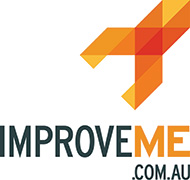Advice from the experts – edition two
 ImproveMe:
ImproveMe:
Anastasia, you graduated from university during the last recession. What challenges did this create for you in trying to secure a full-time role and what advice do you have to anyone seeking employment in today’s similarly tough economic environment?
Anastasia:
Becoming a journalist was my dream and I had it all mapped out. Or so I thought.
What I hadn’t planned for was Australia going into recession in the early 1990s, while I was at university. It took almost a year to land a cadetship after graduation. It was difficult and challenging, but I have never taken employment for granted since.
My advice to graduates facing a similar situation is to do whatever you can to improve your skills, gain experience and rise above the competition.
I practised my craft as much as I could. I wrote for local newspapers and penned letters to the editor. It was unpaid work, but it was industry experience and it allowed me to build up a portfolio of published work. I also volunteered at a community centre where I learnt how to deal with members of the public and provide them with accurate, timely information. Skills every journalist needs.
When it became clear there weren’t enough jobs in my chosen city, I cast my net wider. I got my first job on a regional newspaper after driving more than two hours on a Sunday to meet the editor.
A degree will only get you so far. Go (or drive) the extra mile if you really want to stand out from the crowd.
Advice from the experts – edition one
 ImproveMe:
ImproveMe:
Brent, what’s your advice to people who have recently found themselves out of work due to COVID-19?
Brent:
In the immediate time, my advice is not to panic. Try to take a considered viewpoint about the circumstances that we all find ourselves in. One of the biggest issues is that every impacted person is going to take a real hit to their confidence. I believe it’s important to give people an ability to help rebuild their confidence in the first instance, before they get back into the workforce.
How can you do this? Start by understanding what your strengths are as a person, take the time to invest in learning more about what makes you as good as you can become. How can you improve on those strengths even further? Then start to slowly map out what your pathway back into the workforce might look like.
Speak to everyone you know to open up networking opportunities. Everyone’s willing to talk to those who reach out when they’re looking for different roles, different advice, different guidance. So talk to as many people as you can.
Also, keep involved in educating yourself, keep upskilling and keep reskilling, and keep your eye on different sorts of opportunities as and when they present themselves. Keep an open mind about where an opportunity might come from, because while we are going through tough times, there are some industries out there that are growing and thriving that are continually looking for people as well.
